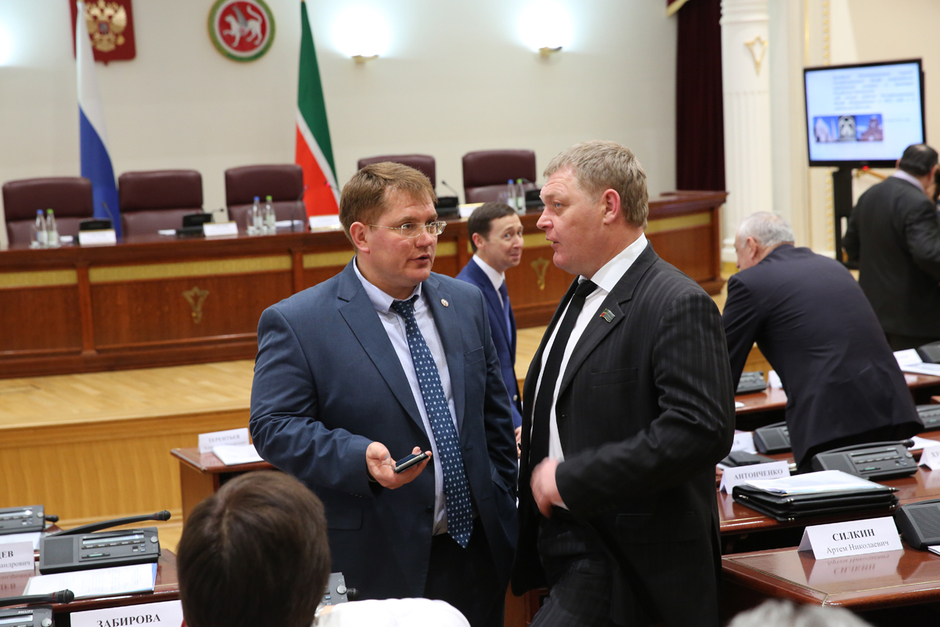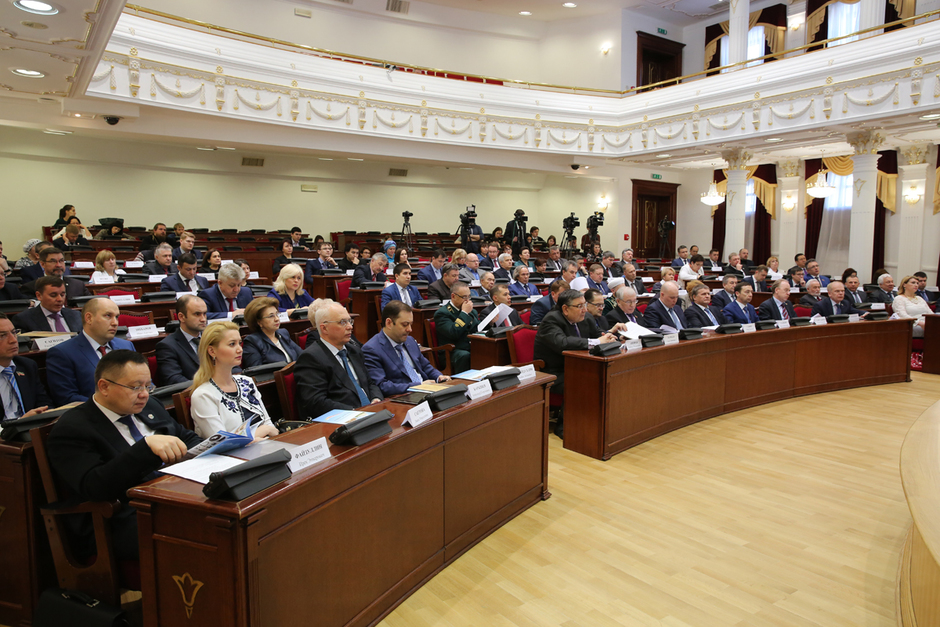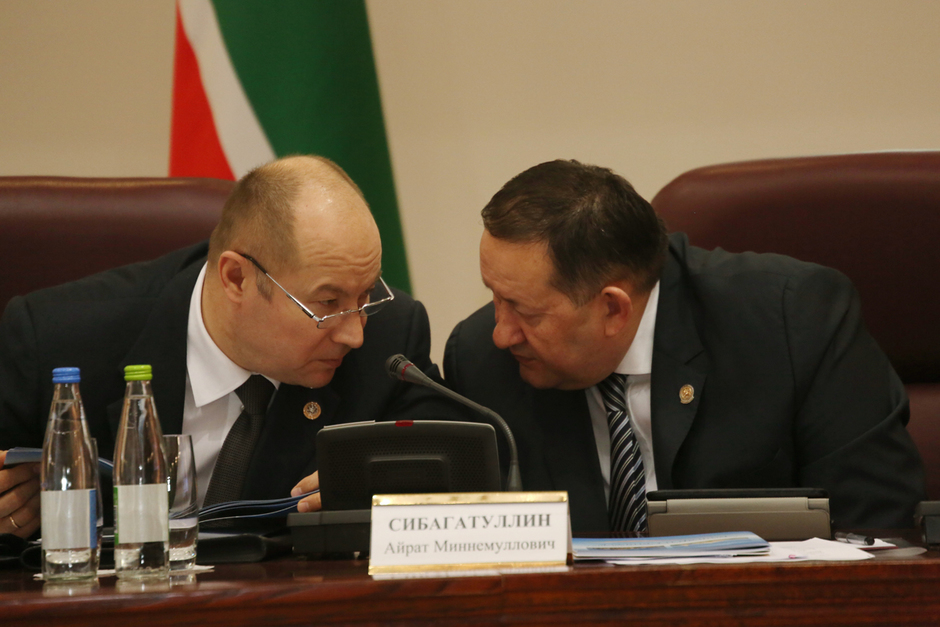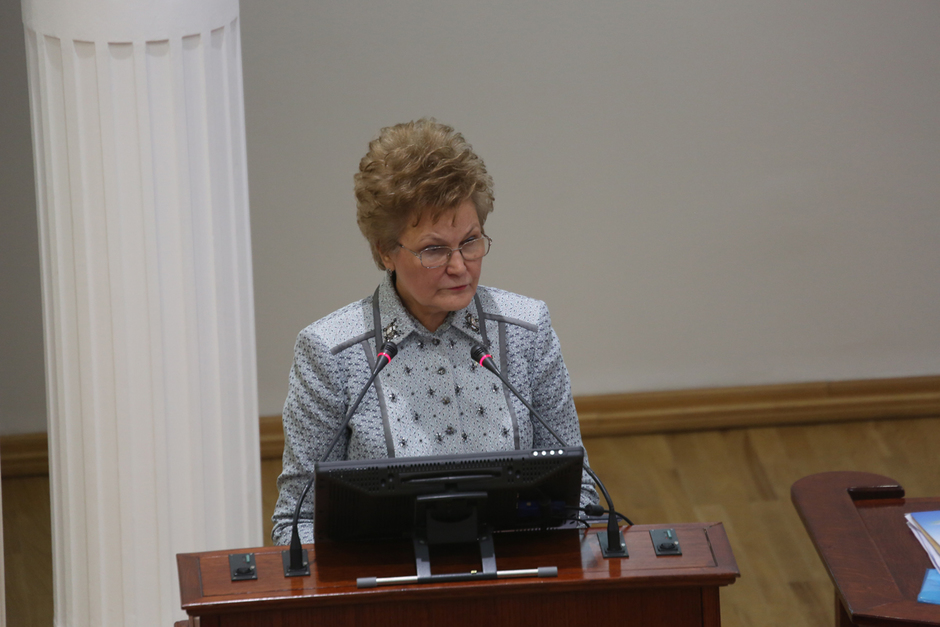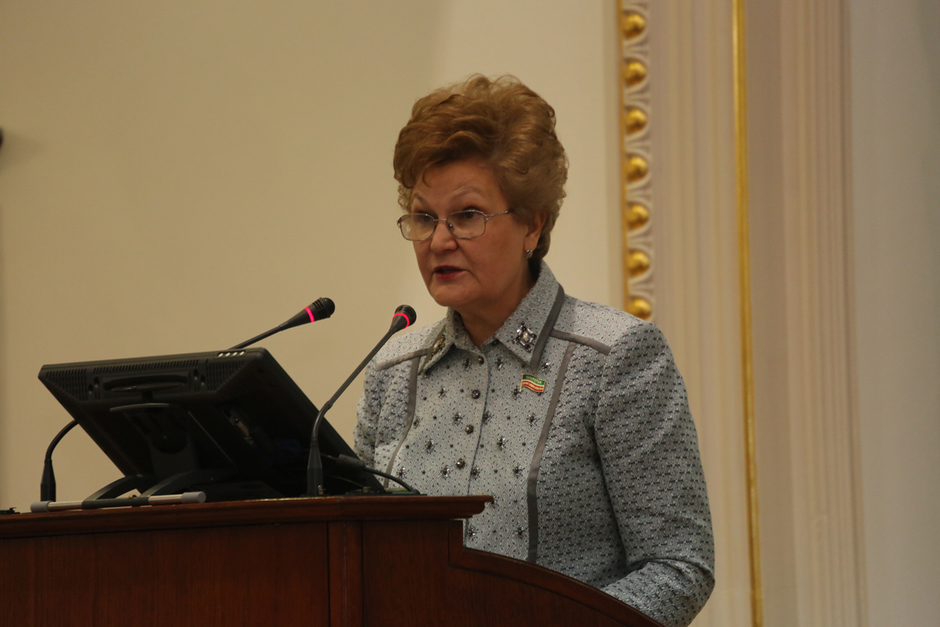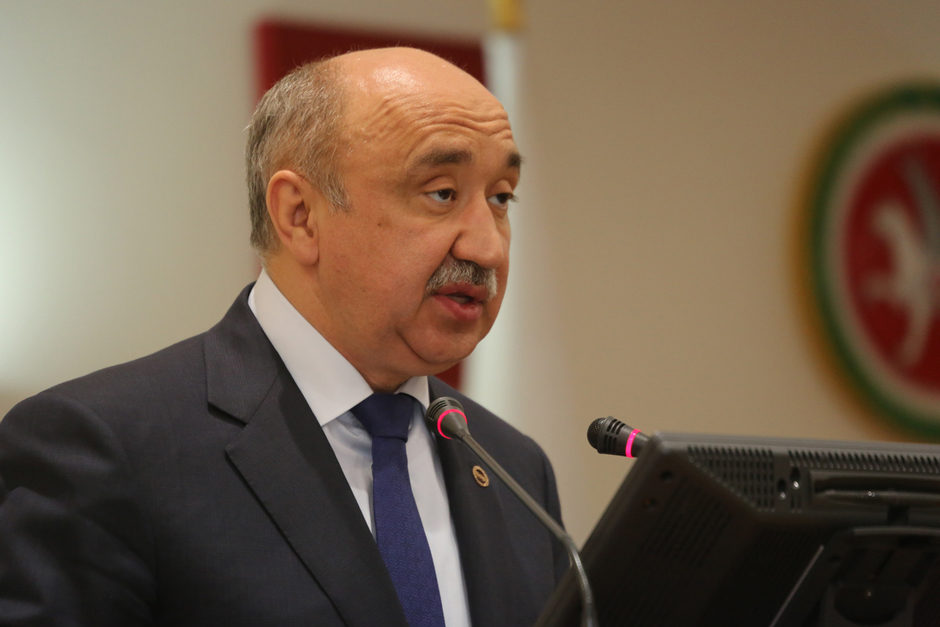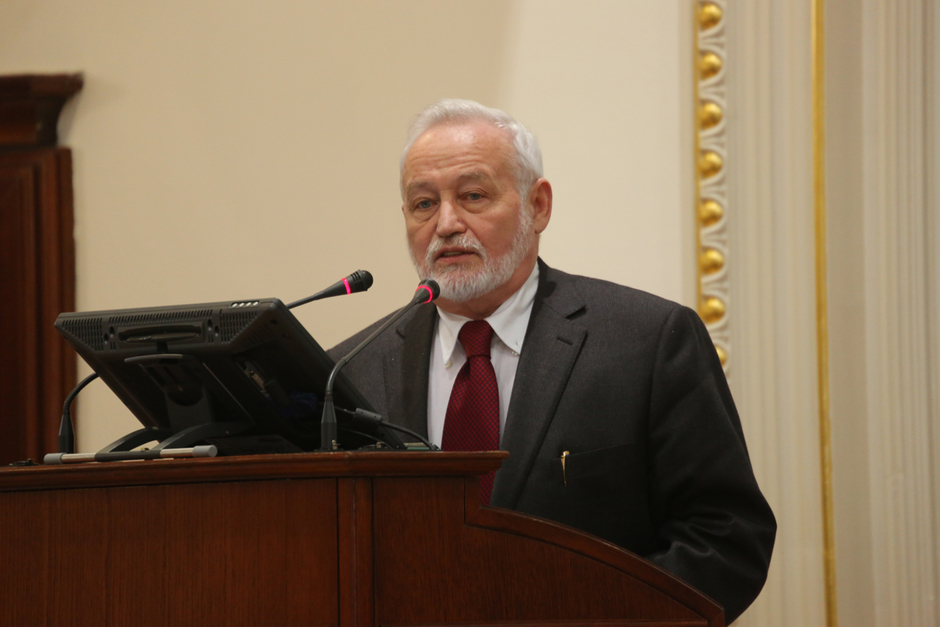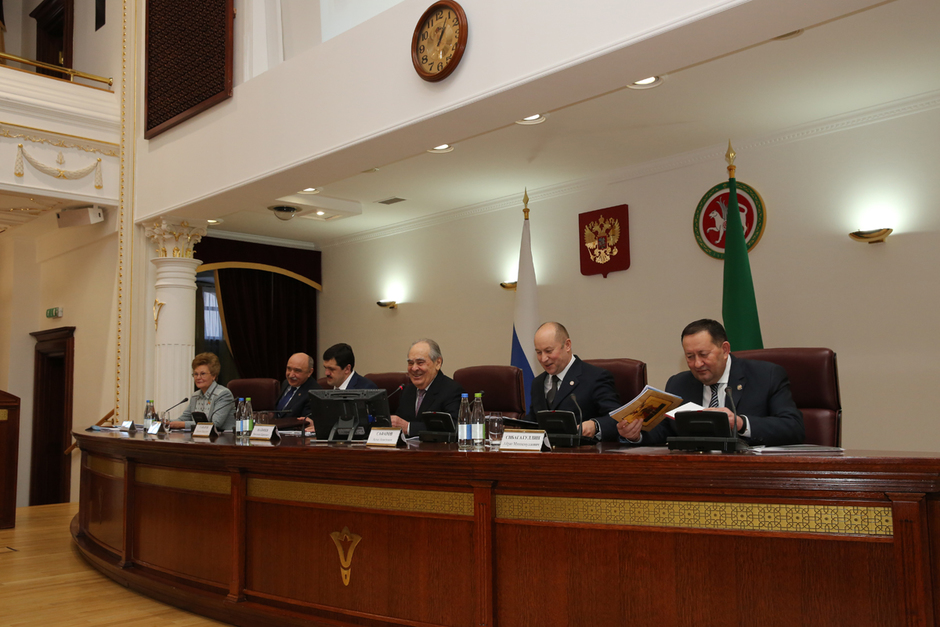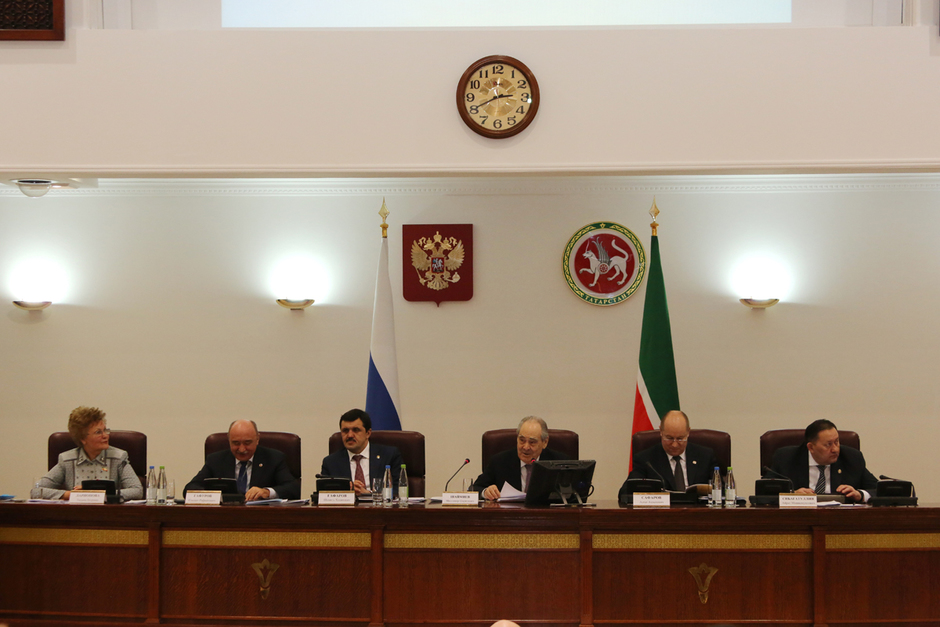Mintimer Shaimiev: ‘We left our footprint in history’
Renascence foundation reported on funds at more than 840m rubles, 800m rubles of them were invested by Tatneft and TAIF
Conclusions of 2015 were drawn and new goals for 2016 were set at the meeting of the board of trustees of the Regional Foundation of Revival of Historical and Cultural Monuments of Republic of Tatarstan that took place on 10 March in the Kazan Kremlin: to build gardens of Zulekha's dreams in Bolgar, dig a 'Tatar Sloboda' in Sviyazhsk and on no account should the land of historical value be encroached on. They did not forget to express their gratitude to the sponsors who invested over 840m rubles in total in the project of Renascence in 2015.
'We do our best both spiritually and materially'
When the state adviser of the President of Tatarstan and the chairman of Renascence foundation Mintimer Shaimiev entered the Kremlin hall, people traditionally stood up and welcomed him. Mintimer Shaimiev asked them all to take their seats and noted that many meetings might take place during one day and people have to stand up and sit down many times.
'We should not take a seat at all,' somebody said. This joke was greeted with a burst of laughter.
Then they started with a serious topic after a fireside talk – discussion of the results of the work of the Regional Foundation of Revival of Historical and Cultural Monuments of Republic of Tatarstan in 2015.
'Now Bolgar is on the list of the committee of UNESCO and is admitted to be a world heritage, we also try to include the island of Sviyazhsk, we should correspond. We do our best in many respects – both spiritually and materially – carrying out these projects,' Mintimer Shaimiev emphasized.
According to his words, above all, we should remember that people come to Bolgar and Sviyazhsk to get knowledge.
Gardens from Zuleykha's dreams
Tatiana Larionova, the executive director Renascence foundation, presented a more detailed report on the work done. Undoubtedly, the financial results are more interesting, given that the majority of investors, sponsors and executors of the state procurement were present in the hall.
'809,321,614m rubles of juridical persons were expended to the bank account of the foundation, including the resources of the investors of Tatneft and TAIF Group of Companies for the execution of works on construction of the hotel complex at 800m rubles. The funds received from natural persons made up 31,512,348m rubles,' Larionova enunciated. According to Larionova, 350,000 tourists from 81 regions of Russia and 34 countries visited Bolgar in 2015.
Speaking about Bolgar, the hotel complex was a top project in 2015. According to the results of the voting, it was named Kul Gali. Gran construction company is constructing the establishment whose capacity is 292 people. In the hotel, there will be created an architectural analogue of Bolgarian banya – White chamber of 16 th century. Moreover, the name of the complex will be used too: the gardens described in Zuleykha's dreams in Kul Gali's poem 'Tale of Yusuf' will appear on the territory of the hotel.
Larionova informed that works on foundation pit of four blocks were done, vertical leveling was carried out, monolithic walls of the first floor, monolithic walls and columns of the parking were erected, etc. In 2016, it is planned to build the very building of the hotel, restaurant, banya and external utility facilities. The establishment is to be ready in 2017. What is more, the State Housing Fund starts a rental programme of dwelling: if builders live in the rented houses at the first stage, then it will be designed for the personnel of the hotel.
'It is allowed to go on an excursion and take a breath'
As for Sviyazhsk, the most part of work was carried out in the Cathedral of the Assumption and the Cathedral of St. Nicholas. In 2016, it is planned to restore the roof, facade, drainage system, doors and lattices in the Cathedral of the Assumption. Moreover, frescoes of Ivan the Terrible's era (18 century) will be restored.
Speaking of Sviyazhsk, Shaimiev prescribed that the fate of no square metre of the island should be decided behind the authority's back. He noted that a desire to have a parcel is quite natural, but the island has a historical value.
'There will be many people who wish it. It is allowed to go on an excursion, take a breath and visit the museums, which are created by the administration of the city-District,' Shaimiev smiled.
'We left our footprint in the history'
In 2016-2017, there will be built another large project in Sviyazhsk. It is the first museum of wood archaeology in Russia. It is unique because all exhibits will be placed where they were found by archaeologists. A whole street of wooden houses is to be reconstructed, which will be called 'Tatar Sloboda' (approximately 16 th-17th centuries).
'I would like to emphasize that we are speaking about an archaeological wood, not small finds, but whole streets, whole manor houses and whole houses. It is one of the most difficult tasks in archaeology – preservation, conservation and exhibition of this wood. In this sense, Tatarstan is not the first region of Russia that began this work. But where are the results?' Leonid Belyaev, the head of the Department of Archaeology of Moscow Rus of the Institute of Archeology of the Russian Academy of Sciences, started his speech.
He reminded that an attempt of creation of such a museum was made in Novgorod, which is famous for its architecture and birch bark letters. Unfortunately, it was unsuccessful. The museum turned into archaeological digs partially covered with soil.
'In Sviyazhsk, we see another thing. We will see a really 'wet' cultural layer of the island,' Belyaev stressed and remembered his impressions of the finds from Sviyazhsk. The scientist's words that no people won't be able to understand their present and future without the understanding of the past found an echo in Mintimer Shaimiev's heart by the end of the meeting. The first President cited a Tatar poet Gabdulla Tukay.
'We left our footprint in the history. It is very difficult to translate Tukay as well as any other genius,' Mintimer Shaimiev noted saying goodbye to the scientists and entrepreneurs.


